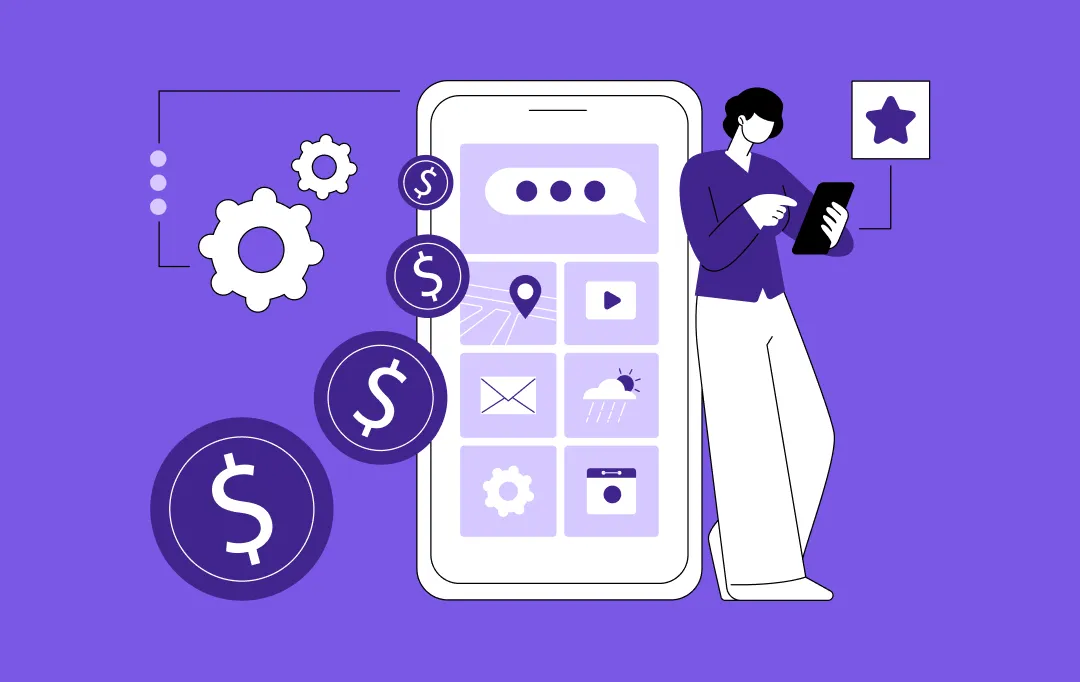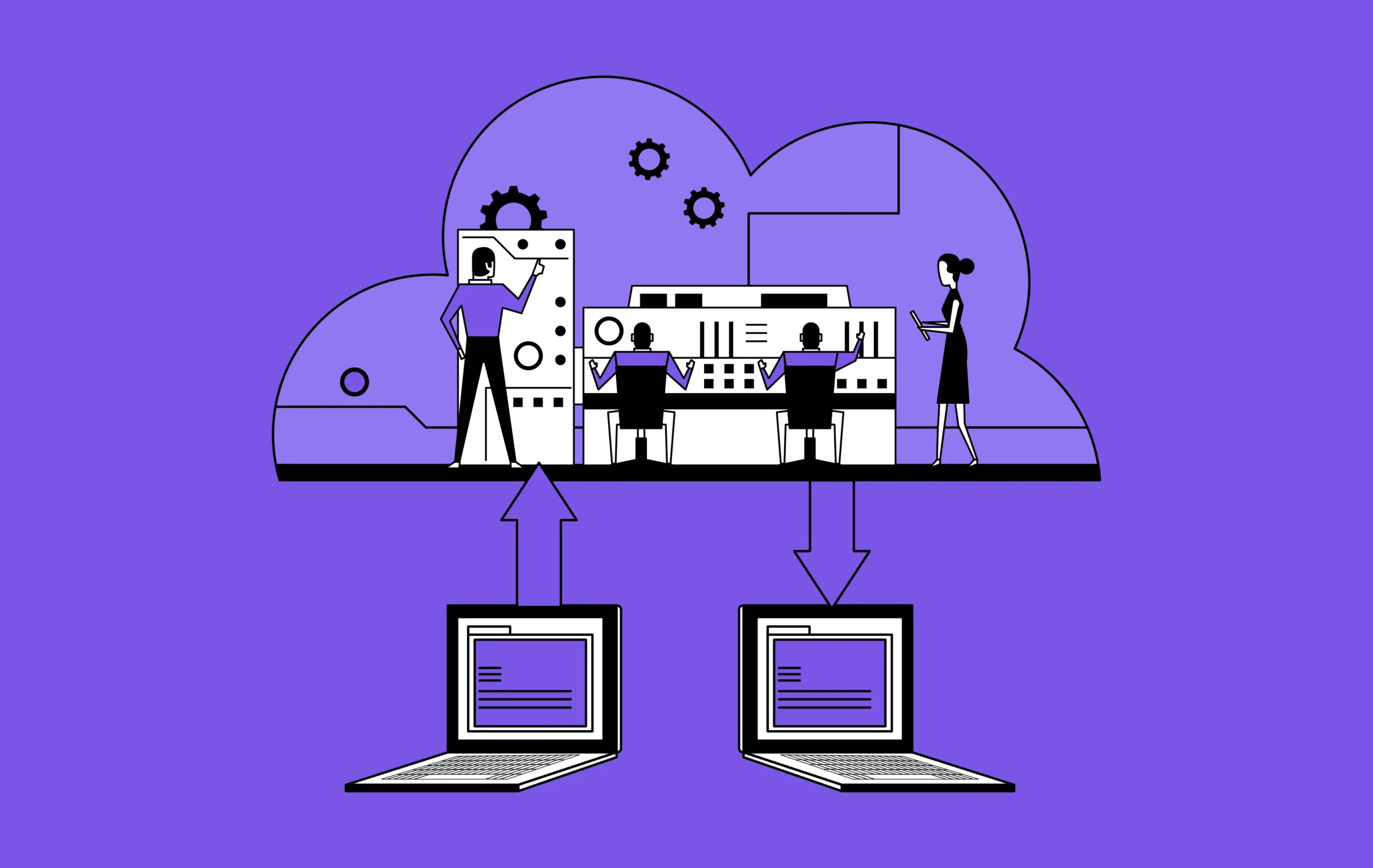- Introduction: What is Fintech?
- Types of Fintech Business Models
- 1. Alternative Credit Score System
- 2. Smarter Insurance Plan Designs
- 3. P2P Lending
- 4. Smaller Loans Sanctioning Services
- 5. Asset Management Platforms
- 6. Payment Gateways
- 7. Digital Banking Applications
- The FinTech Model Benefits
- Financially rewarding
- Slow incumbents
- Customer base loyalty
- Economic Democratization
- Final words
Fintech is not a new innovation or technology as it has been there in the past and has simply evolved at a rapid pace. Whether it was the arrival of credit cards or ATMs, electronic trading floors, and high-frequency trading, technology has been a part of the financial sector to some extent.
Be it the influence of the significantly dropping investment markets or an event of the American companies leveraging the underlying fintech business potential, the year 2020 presented a staggering growth for the fintech space. This has led to attracting investors’ attention through different fintech sectors.
To be specific, the US fintech industry opened its doors for over 8,775 fintech startups in 2021, spiking the global fintech adoption rate to 64%. In addition to that, the US fintech industry received investments nearing $50 billion.
According to the Business Research Company, the global financial services market is projected to reach $158,01 billion by 2023.
As per Statista, globally, the number of financial services for startups reached more than 6.5 thousand. The fintech software development companies have also observed the highest number of start-ups funded worldwide with under three thousand.

These investments have certainly induced a spate of interesting events occurring inside the global fintech space, and for all the good reasons, the fintech business models are evolving more rapidly than ever. In this article, we are discussing them in detail.
Introduction: What is Fintech?
As it suggests, “fintech” is a combination of two words, i.e., “financial” and “technology.”
The idea of fintech is to combine a finance-related concept with technology to educate and/or enable users to access various financial opportunities that can add value to their lives.
Myriads of fintech business plans allow their users to carry out monetary transactions across bank accounts quickly. Some of the fintech startup ideas aim at delivering investment oriented financial services to their users’ smartphones. And then there are banking business models enabling users to efficiently manage their finances on-the-go and make use of APIs.
Some use cases comprise:
- Digital banking
- Alternative credit scoring
- Unbundling
- Demographic-focused products
- Different fee structures
- Insurtech

In one way or another, most of the present-day financial service business ideas are helping users. However, someone who intends to enter the fintech industry as a player, may prefer to gather more in-depth information about the space; and that you can find in the following sections.
Types of Fintech Business Models
As the financial needs of the American population are evolving, the need for coming up with innovative financial service business models is on the rise. As investors and entrepreneurs strive to synthesize revolutionary ideas, the following list of leading fintech business models may advise some direction.
1. Alternative Credit Score System
Anyone whose loan application has been declined knows the significance of maintaining a healthy credit score.
However, the process that it requires isn’t often the easiest for everyone. Whether it’s a late EMI payment or a short credit line, a wide range of factors can negatively impact your credit score.
Which is why, an alternative credit scoring system can make one of the great financial services for startups and individuals.
Many fintech companies are already analyzing social signals and percentile scoring methods to rate their potential borrowers and decide suitable credit limits for them.
2. Smarter Insurance Plan Designs
In 2019, the overall valuation of the health insurances owned by 179 million Americans (55% of the US population) accounted for $1,195 billion. This indicates that from business owners to 9-5 employees, a large part of the American population is still relying on insurance as a safety net for unexpected emergencies.
But, are the existing insurance plans efficient and just towards their users and the insurance companies?
Considering the currently active insurance plans, two individuals who don’t smoke or drink and have the same BMIs will probably be paying the same premium.
But what’s wrong with that?
The problem starts when one of the individuals works out regularly and has a healthy lifestyle, while the other one spends most time lying around with a bag of chips and soda.
Certainly, the latter individual is making unhealthy lifestyle choices that may be a problem for the insurance company. While, on the other hand, the first person is health-conscious and still paying the same premium as someone who isn’t mindful about their health.
This scenario is unjust for the insurance company and their users.
A solution for optimizing these flaws can be a great example of fintech business model innovation.
3. P2P Lending
Here’s yet another solution to the low credit score problem.
P2P, a.k.a peer-to-peer lending, is the process when two individuals indulge in a lending and borrowing transaction without the monetary involvement of any third party.
While this concept has long been popular inside our personal groups, present-day P2P lending platforms (such as Funding Circle) take this to a new level by connecting borrowers to potential lenders, ensuring a trustworthy transaction.
This makes borrowing easier for people with low credit scores. Also, in the fintech lending business models, lenders get to earn decent interest on their money — a clear win for all the parties.

4. Smaller Loans Sanctioning Services
In an age where data is valued like gold, the financial service business ideas can prove to be one of the best fintech business models.
Most of the banks and major lenders avoid offering smaller loan amounts to their borrowers. The primary reason being the low profits that are further diminished by high processing and recovery costs.
However, several fintech businesses are cutting down the challenges for the small borrowers, accelerating the change in fintech industries.
These lenders allow users to easily and quickly pay for the services they avail or the products they buy online, in one click (after a one-time setup). As a result, the users are saved from the effort of waiting for OTPs or recalling their CVVs at the point of purchase.
This fintech payments business model makes the payment procedure super-easy. The loans are sanctioned at low interest rate, so anything can be bought in one click and paid for in multiple installments. And most importantly, the business enabling these transactions gets access to the valuable user data (of course as and when permitted).
Speaking of how the money is made, the data accumulated in the process can be traded to a number of businesses in your niche.
5. Asset Management Platforms
A recent Gallup study reports that 56% of the US population owns at least one stock and a large chunk of this proportion invests actively in the stock market.
Additionally, as per a study published by NORC, a research group at the University of Chicago report, in 2020 over 13% of the Americans started investing in cryptocurrencies, and the number is set to grow further in the coming years.
Certainly, the digital asset industry is on the rise, and it’s the right time for entrepreneurs to place their bets on this fintech business model category.
The simplest idea is to develop cryptocurrency exchange and promote it adequately across the target audience.
How will this model make money?
Like all asset exchanges, your business can also charge brokerage for every trade that a user executes. You can also offer users a referral commission for each referral user that they bring on board.
There’s a world of assets that can be traded over a smartphone these days. Check them out, explore your best bets and make a smart decision. Many startups also rely on fintech consultancy services to refine these models and align them with regulatory, technical, and market needs.
6. Payment Gateways
All the online transactions across eCommerce, food ordering, or other product/service websites require payment gateways.
However, it costs companies heavily to set up and maintain these payment gateways. This fee goes to banks, developers, and many other resources, making payment gateways an expensive transaction option.
Fortunately, the issue can be resolved by integrating these transactions into apps that online merchants can comfortably afford. Ideally, the user base of these apps will include businesses selling their products or services through their own website.
7. Digital Banking Applications
Another fintech business plan brings the conventional brick and mortar banks to the customers’ smartphones.
According to Statista, as of August 2021, there are 290 million smartphone users in the USA.
Another report from the FDIC Survey of Household Use of Banking and Financial Services, states that, as of 2019, 124 million American households had bank accounts (accounting for 95% of the US population).
Clearly, banks and smartphones are destined to make a great match, and companies leveraging their potential can do great in the fintech space.
Also Read: How Digital Transformation in FinTech is Shaping the Future of the Industry
Moving further, it’s important to note that your lack of expertise at application development should not limit you from launching a fintech startup. Appinventiv is a reliable fintech software development company that can help you overcome this hurdle.
The FinTech Model Benefits
Financially rewarding
The financial sector is one of the largest groups of industries in the world, and as a result, there are several opportunities to produce large sums of money. The financial services business models startups are among the best-funded and valued, for example, Coinbase, Ripple, TransferWire.
As per Statista, 75% of consumers globally have adopted some form of money transfer or payment service by 2019.

Slow incumbents
Many existing players (particularly traditional banks) rely on obsolete old systems. This makes responding to rapidly shifting consumer trends incredibly challenging. Some of the newly founded neobanks have taken advantage of this slow incumbent and have begun stealing customers from existing banks. Other incumbents have reacted by forming strategic alliances with these challenger banks, offering the necessary banking licences and regulatory knowledge.
Customer base loyalty
The average adult in the United States has had a bank account for 16 years. Customers trust their banks to keep their assets safe, to borrow money for life-changing purchases such as a house, and to advise them on how to manage their existing cash effectively. While obtaining a customer isn’t cheap (banks, for example, spend billions on various marketing initiatives every year), they tend to be quite loyal throughout their membership.
Economic Democratization
The introduction to business has always been ill-matched. Whether it’s autonomous trading or modern class perfections, not everyone earlier got the opportunity to participate in the economy or gain access to similar economic opportunities. But with technology, the democratization of financial services has been possible.
Like, the advantages of automation not only lowers the cost, but also extends convenient tools to the public. From a corporate point of view, in the past, only individuals at the top of the pyramid could be economically democratized, but now individuals at the bottom can also make use of such services.
Final words
Looking at the present state and current FinTech industry trends, it won’t be wrong to quote its unexplored potential and what it can do for businesses and users.
In this article, we discussed popular fintech payment business models that have been performing impressively since their arrival and the benefits of the fintech model. The addition of these business models to the traditional banking environment can help the banking and financial services industry reach international standards.
The different types and examples we mentioned, as well as the firms that stand behind these successes, should persuade you to either create your own app or learn more about this issue.


- In just 2 mins you will get a response
- Your idea is 100% protected by our Non Disclosure Agreement.

Open Banking in Australia: A Practical Guide for Businesses
Key takeaways: Open banking-driven “Smart Data” initiatives are projected to contribute up to $10 billion annually to the Australian economy. Enterprises that follow a phased rollout covering readiness assessment, compliance alignment, API integration, cybersecurity, and scaling achieve faster deployment and lower operational risk. Constant CDR updates, accreditation complexity, and modernising legacy banking systems continue to…

Financial Wellness App Development: Process, Features and Costs
Key Takeaways Strategic ROI: Financial wellness apps are no longer "perks"; they are critical tools for reducing financial presenteeism and improving institutional retention. Technical Integrity: Successful deployment requires seamless integration with Human Capital Management (HCM) systems and secure Open Banking APIs. Compliance-First: Enterprise-grade solutions must prioritize SOC2, GDPR, and ISO 27001 standards to protect sensitive…

Money Transfer App Development: Building Secure Payment Apps in 2026
Key Takeaways Money transfer apps in 2026 succeed when compliance, security, and scalability are designed into the platform from day one, not added later. Choosing the right app type early helps avoid costly rework as transaction volumes, regions, and regulatory demands increase. Strong internal ledgers, clear settlement states, and automation are critical to preventing reconciliation…



































